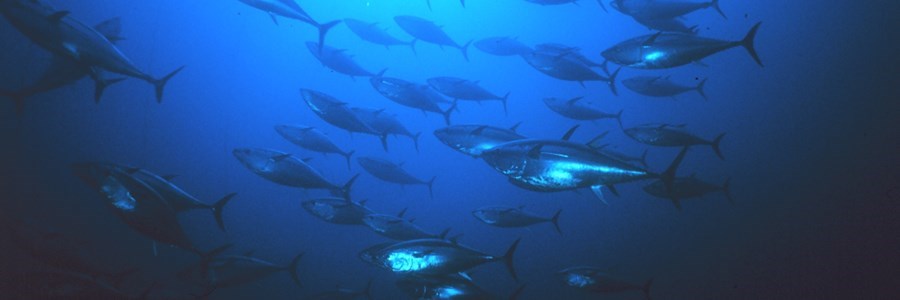Europêche insta a la CE a eliminar los contingentes arancelarios libres de derechos de 22.000t para los lomos de atún de países del sudeste asiático

Europêche considera que existen suficientes lomos de atún procedentes de la flota comunitaria y de los países con acceso libre de aranceles a la UE. Europêche también sostienen que hay otras especies como la platija, panga, abadejo de Alaska y tilapia comúnmente utilizados como productos sustitutivos que también se benefician de las importaciones libres de aranceles a pesar de una importante mejora en los stocks comunitarios.
Europêche yesterday called for DG MARE to eliminate the zero tariff quota on 22,000 tonnes of tuna loins from Thailand, China and Vietnam, in practice, the only countries benefitting from this new quota tariff.
Europêche already raised this issue in January with Commission, which was also recently endorsed by the European Transport Federation (ETF), who represent the European trade unions, as well as various NGOs such as WWF, Oceana and the Coalition for Fair Fisheries Agreements (CAPE).Europêche considers that there is sufficient tuna raw material from the EU fleet and from countries that have duty free access to the EU, to supply the European canning industry. In fact, with the Spanish and French controlled fleet alone, around 700,000 tons of skipjack, yellow fin and big eye are caught annually .
At the meeting held yesterday in Brussels, the President of Europêche, Javier Garat , accompanied by the Managing Director, Kathryn Stack and Policy Advisor, Daniel Voices, explained to the Commission that today, there is enough excess supply in the market to ensure supply in quantity , quality and a sufficiently competitive price for the processing industry not to need more benefits, to the detriment of our European producers. In fact, from September 2013, the price of tuna has dropped from 1800 €/t to 840 €/t (down 53.33%).
The representatives of ship-owners have informed the Commission that they are forced to sell the whole frozen tuna to international markets because much of the EU processing industry can buy it from third countries. In this way, they have reminded the Commission that the gutting and cleaning of the whole tuna is where most jobs are needed. Therefore, it is clear that increased imports of tuna loins to the EU will be a loss in the number of those jobs. This situation contrasts with the baseless arguments of the canning industry, which is being threatened with job losses if the quota is not increased. It should also be noted that major Spanish canning companies are also against the approval of the quota as they prefer to focus on quality and ensuring responsible fishing offered by Community production and from certain American countries, creating value for the whole chain without distorting the market.
Europêche has also reminded the Commission that, in practice, the only countries that could benefit from the tariff quota of tuna loins, that is, Thailand, China and Vietnam, are particularly criticized by the canning industry itself when referring to the canned product, considering that they do not respect the same standards set by the EU on regulation and control of fishing activities, working conditions, health guarantees and sustainability of resources. Therefore, for the European ship-owners, the request of the canners regarding tuna loins is inconsistent with what they preach in respect of canned tuna, is not justified and could be the prelude for further liberalization of imports cans of tuna from those countries, which would be catastrophic for the European tuna sector as a whole.
Similarly, Europêche does not recommend the tariff-free imports of yellow-tail flounder, rock sole, pangasius, Alaskan pollack and tilapia which are used as substitute products for a number of sustainably fished species and are used for processing. Large volumes of cod and hake are also benefitting from various trade-related measures despite an improvement in the state of the stocks and in fishing opportunities for 2015.
Finally, Europêche has informed the Commission that countries like Mauritius or Ecuador and, in general, the ACP countries (African, Caribbean and Pacific) and those covered by the GSP + (Generalised System of Preferences) will be also seriously affected.
Europêche represents the fisheries sector in Europe. Currently, the Association comprises 16 national organisations of fishing enterprises from the following 10 EU Member States: BE, DE, DK, ES, FR, IT, MT, NL, PL, UK.
Press contacts:
Kathryn Stack, Managing Director of Europêche: +32.2.230.48.48 kathryn.stack@europeche.
Sources: Europeche
Tags: fisheries, eu, zero tariff quota, tuna, stocks, duty free access, european commission, tariff-free imports, GSP +, Thailand, China, Vietnam